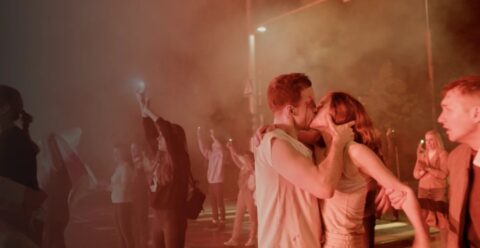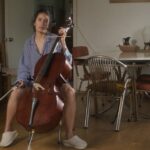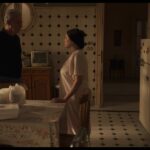Cottbus, Brandenburg, November 2022
“All of this will be Europe one day,” points out a veteran biker in Riders (Dominik Mencej, 2022) — set in April, 1999 — standing beside a long snaking queue of trucks waiting on the Slovenian-Croatian border. “No customs, no borders.” It took almost 24 years for this specific dream to come true. Croatia joins the Schengen Zone on January 1st, 2023. But the rest of Eastern Europe (or however you define the region south of Austria and east of Germany) is far from sunshines, smiles and universal brotherhood.
Cultural and social integration is a very tricky thing to get right. Perhaps Cottbus is a success story. Located in the heart of the historic region of Lusatia, it straddles both German and Sorbian culture. As the Sorbs are the only Slavic group indigenous to Germany, it makes the 32nd Cottbus Film Festival the perfect location for investigating Eastern Europe cinema each and every year, providing an absolute gem of a festival that I’ve had the wonderful chance to explore.
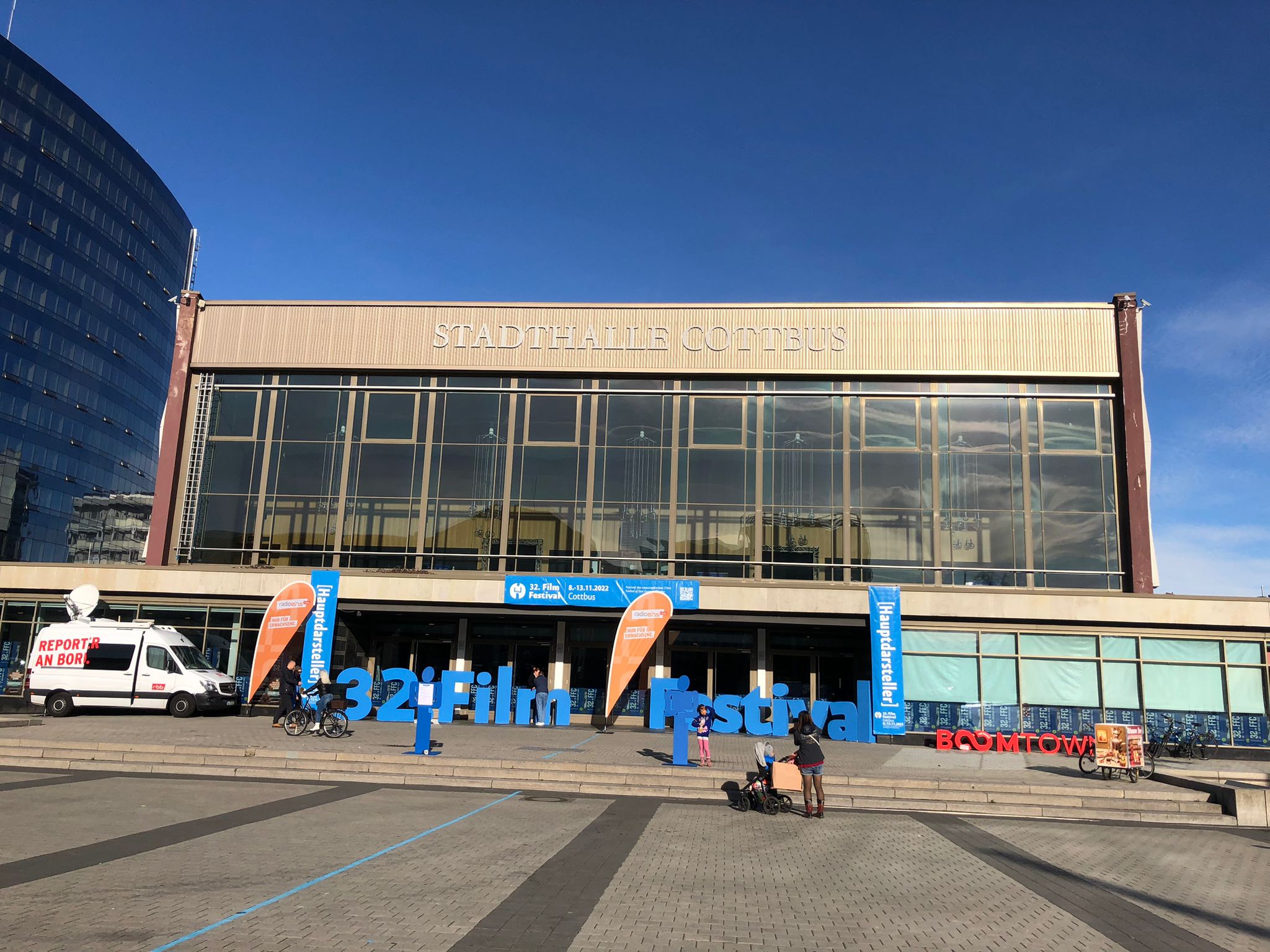
This week’s Journey into Cinema starts in the best way: on a train, the 09.36 regional from Berlin Hauptbahnhof to Cottbus Hauptbahnhof. The train, decked out in green and white colours, takes one out of Berlin and into the Brandenburg hinterlands, past the Tropical Islands resort (with its own train station!), endless wind turbines and smooth, rolling fields. Soon the names of the train stations are written in two languages: German and Sorbian. This is part of a specific effort since reunification to re-establish Sorbian culture within the region after historic oppression during the Nazi era.
Despite the fact their population across the entire region has dwindled to only around 40,000 people, many street names in Cottbus (or Chóśebuz) — the historic centre of Sorbian culture — are in both languages. Where the Sorbian language is omitted, you can see stickers reminding the city municipality of their mistake. And some Germans seem to say Dobry źeń (hello or good day) in Sorbian before continuing auf Deutsch. It’s a nice detail, both cultures perhaps working in tandem. Still, I couldn’t quite seem to find any traditional Sorbian food. I had to settle for a pizzeria. I’m not a food critic, but it may have been the worst pizza I’ve ever had. I’ve genuinely had pizzas with more depth of flavour from the frozen aisle of the supermarket.
Terrible food aside — and definitely not a reflection of the Cottbus food scene at large, which may be good or bad, but I’ve got films to see — day one provided a lot of good news about the state of Eastern Europe cinema, but little good news about the state of Eastern Europe itself. With oppression from Belarus, depression from Poland, corruption from Romania and… a vacation through Slovenia, only former Yugoslavia managed to provide any genuine levity to proceedings.
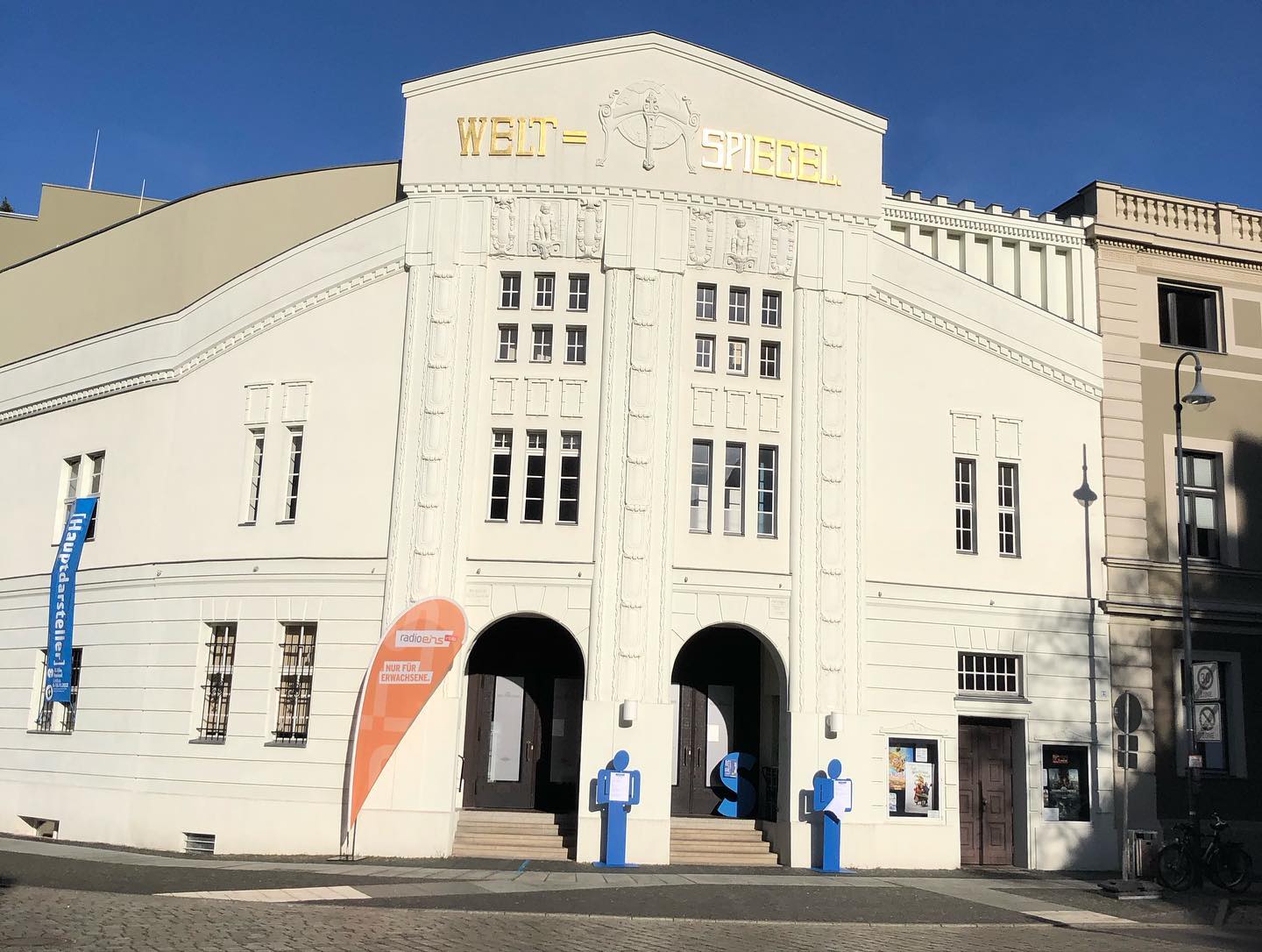
Oppression
The day starts in Minsk, with… Minsk (Boris Guts, 2022, feature image and below). Raw and unvarnished, letting the festering wound of state brutality bleed out in cinematic form, this is a harsh, wondrously-made one-take competition entry that takes a unsparing look at what it truly means to live in a fascist state.
Set in 2020 during the height of the protests against Alexander Lukashenko after he stole the election, Minsk tells the story of a young couple accidentally caught up in the evil machinations of OMON (military police) thugs. Amazingly-made yet at times oddly conceived, it shows Guts is a confrontational filmmaker with acres of skill, but also one deeply in need of someone to call him out on his more showoff-y tendencies.
There’s shades of Gaspar Noé here, both in the mix of love and terror and in its high-level formalist ambitions. The one-take often slides between careful, thoughtful blocking and a run-and-gun approach, knowing exactly when and where to frame moments as the film moves between quiet, loud, quiet again and then very loud; reflecting the spontaneity and randomness of police violence. There’s times you can feel the artificiality of it all, as the camera is very obviously lifted over a fence or into a car window, but it nonetheless immerses one deeply into the final product.
It’s certainly a fictional document of brutality — squaring up to reports from victims during that time — but its polemic is strangely undercut by a sideways approach to characterisation. Our lovers are rarely political, neither at the beginning or by the end of their traumatic experience. Instead, they are fully and strangely human throughout. In the beginning they are almost childlike in the way they walk around the flat, talking in cringe mannerisms that couples naked and alone should only keep to themselves.
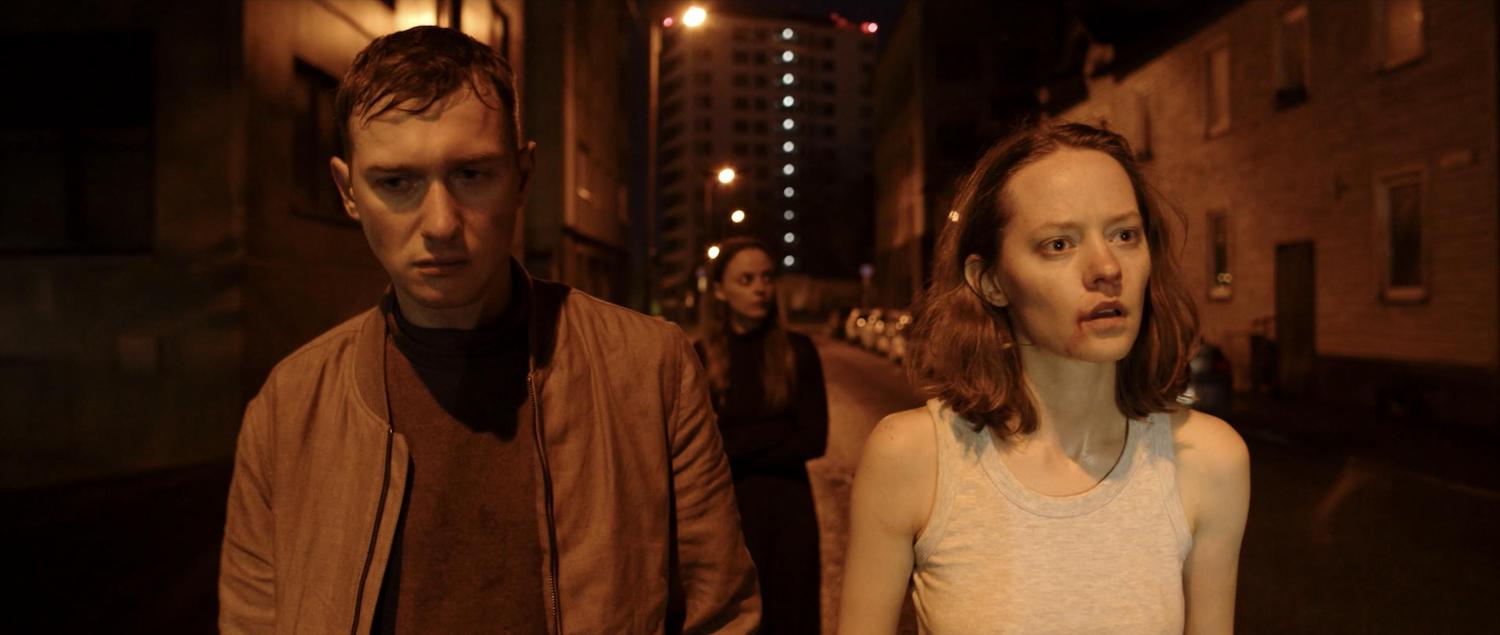
It shows that political violence can happen to anyone, at any time. Unlike in Courage (Aliaksei Paluyan, 2021), they are not fighting the system, but are swept away in it. It at once strengthens the story and distracts from it — on the one hand, violence is violence, not matter who it occurs to. On the other hand the powerful polemic seems minimised by the pettiness of our heroes.
Still, if the violence seems over-the-top and the suffering overly painful, this is only really a sliver of what the people of Belarus have gone through. The reality on the ground is overwhelmingly sad and soul-crushing. Their stories should not be forgotten.
This is a messy, weird movie, both with bizarre needle drops (Radiohead?) and too many endings, the final emotional effect punctured through misery overload. But it shows the deep importance of fighting back against the state — and especially such an emboldened, fascist regime such as Lukashenko’s — through film. Bravo to all involved, but consider more script development next time.
Depression
While the Belarusians are oppressed, it seems that the Polish are just depressed; popping anti-depressants, working long hours, entering their sixth or seventh decade in debt and a sexless marriage. This is at least the story of Dorota (Mira Napieralska) in competition entry Woman on The Roof (Anna Jadowska, 2022, below) — living in an anonymous grey apartment block in the middle of nowhere. With bleached white walls, the interior resembles a sanatorium. The only beautiful place appears to be on the roof, where Dorota goes regularly, dangling her toes over the edge, internally considering the pros and cons of just jumping off completely.
We soon learn the reasons for her sadness, prompting her to try and steal some money from the bank. The bank robbery itself is probably the most pitiful since Woody Allen in Take the Money and Run (1969). She might not have a “gub”, but she does have a kitchen knife, with no idea how to use it. The police immediately get involved, moving her between state institutions with emotionless efficiency. Slowly, layer by layer, her situation, both personal and political, is revealed, resulting in a touching portrait of a woman on the edge; metaphorically and often quite literally.
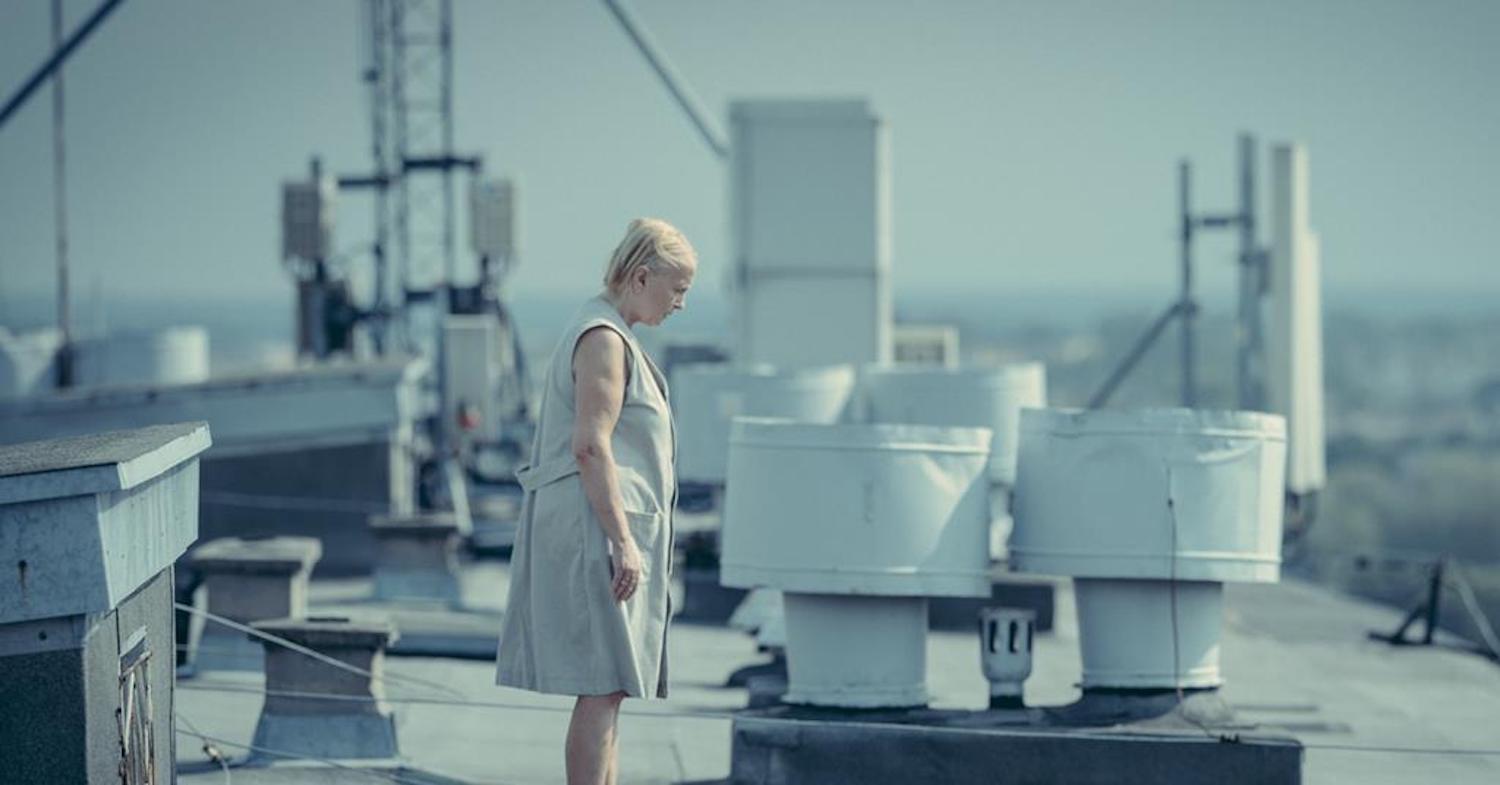
The whole thing hangs together thanks to the performance of Napieralska. The most fascinating part of Woman on The Roof is the way that she is able to compartmentalise her situation from her work. While in everyday life she is a zombie of circumstance, when she works as a midwife, she always knows the right diagnosis for every single occasion. Even more impressive is the way that the film takes her sexuality seriously, never as a punchline but simply as an unanswered question. She’s basically just a woman without any outlet for expression whatsoever.
Combining gasp-out-loud moments and beats of quiet introspective, this is definitely an impressive piece from experienced director Jadowska.
Corruption
The Romanian film Miracle (Bogdan George Apetri, 2021, below) — playing in the Spotlight Romania section — doubles the festival’s wayward nun representation with the story of a novice (Ioana Bugarin) taking a taxi into town for a doctor’s appointment. This is deep rural Romania, where taxi drivers and doctors get into long debates about what’s going wrong with the country and how nothing can be fixed. Using master takes to capture the girl’s plight, the camera stays close to her perspective throughout the film’s fantastic first half.
We might not know what she’s doing or why, but the filmmaking alone, so close to her feeling while never revealing her interiority, creates both a sense of distance and of empathy; asking us to look within ourselves and at society as a whole. One take in particular, a 360 degree pan of the film’s pivotal moment, avoids shock and awe in favour of something far more horrible; a panorama of a world that is both ambivalent and ultimately indifferent.
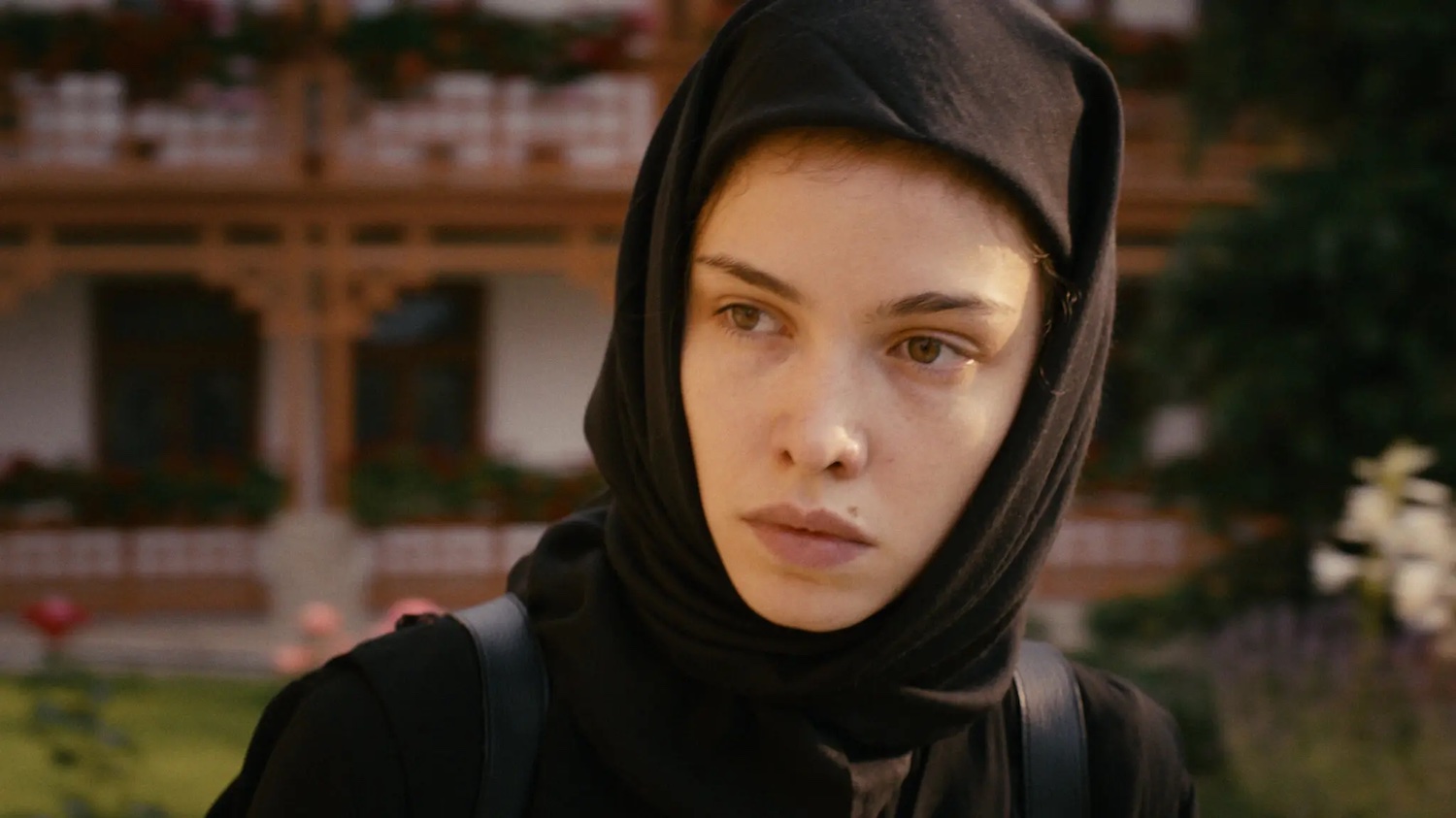
Exhaustive, abrasive, and soundtracked by oldies radio, the first half gets right under the skin, its typically Romanian mix of black comedy and deep dark tone immersing us into a society where corruption runs rampant, from the convents to the hospitals to the police departments. After this horrific crime, we see the perspective switch to a detective, who at first appears to be dogged on the tail of the criminal, but has his own strange reasons for being so obsessed with the case. It reminded me of High and Low (Akira Kurosawa, 1963), both in its bifurcated narrative and in its unabashed exploration of evil.
Like in Safe Place (Juraj Lerotić, 2022), which I caught at Locarno, and actually won the Cottbus Main Competition, this kitchen sink, naturalist approach is imbued with a little touch of magical realism, using its religious parallels to create a type of Holy Mary story. There is some kind of hope (I think?) at the end of it all. It’s just a torturous, yet strangely satisfying, journey getting there. Part two of Apetri’s police trilogy — following Unidentified (2020) — it shows the Romanian New Wave is still thriving well into its third decade. But after watching all that, I think I need a:
Vacation
Slovenia is known as the Switzerland of the Balkans. It’s a pretty well-adjusted country, with a medium-level income, integration into the EU, and direct proximity to both Western Europe and the Balkans. It also has a reputation for being a little sleepy. So maybe, it’s no surprise that Riders (below), playing in the U18 competition, is the only film from the first day that doesn’t really seem to be actively criticising its own country beyond a generic adults don’t get me man narrative.
But seriously, the adults don’t get our heroes. They’re disillusioned young men, living in the middle of nowhere with only their mopeds for company. By chance, Anton (Petja Labovic) discovers a VHS of Easy Rider (Dennis Hopper, 1969). He immediately requests a viewing with his childhood friend Tomaz (Timon Sturbej). After the film is over, they ask themselves: “Why don’t we do that too?”
And so they do, pimping out their mopeds into de-facto Harley’s, making the boys look like parodic Hells Angels. Hitting the road towards Ljubljana to see Anton’s so-called girlfriend, they find their journey keeps on extending and extending and extending, roping in a runaway nun and a seasoned biker along for the ride. Both a bildungsroman and a road movie, a relationship drama and a semi-religious reverie, Riders is probably the one film from Cottbus I will be thinking about most in the upcoming months.
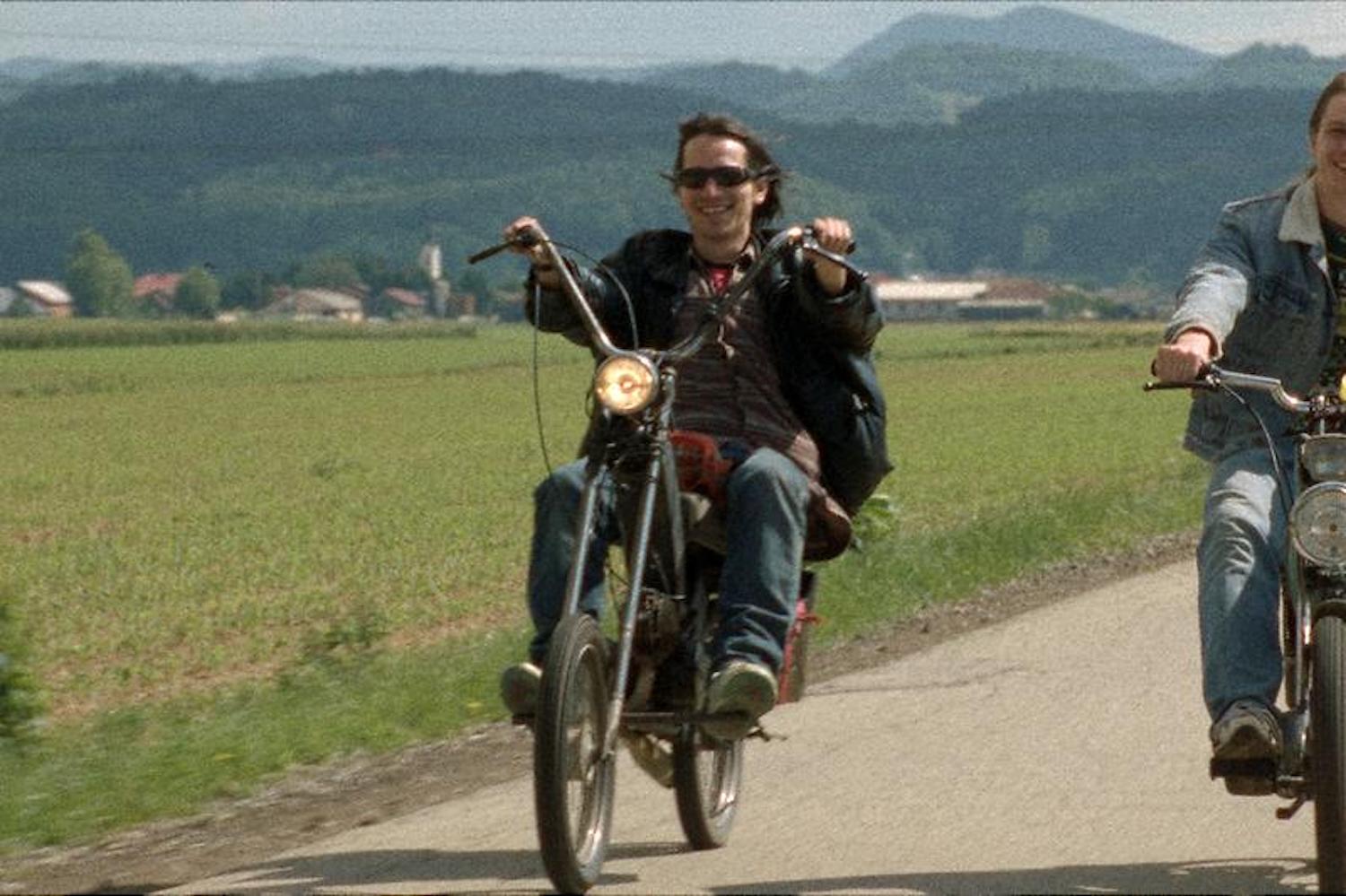
There are moments in Riders that feel like the work of a veteran director rather than a first-time filmmaker. One match cut in particular, skipping from the first rakija of the night to the last one, made me jump up in my seat; as well as a fantastic transition between a bike being blessed with holy water to a schnitzel doused in lemon. And there are parts of this film that feel so fresh, so well-done — including an awe-inspiring fade-cut of a face sleeping on the beach dissolving into a shot of the ocean, a certain way with sweary dialogue, an innovative use of flashbacks, a mesmerising use of ellipses and an unforgettable ending — that it feels like you’re seeing a major, major talent emerge. Then there are the parts that a second editor would’ve trimmed down to make a more coherent, more punchy film. Still, it’s better to see a beautiful mess than an ugly piece of formula. I’ll say that every time.
It also made me realise that there needs to be an Oscar category for location design. No film has ever captured the complete nowhere spaces on a road trip — from the weird hotels to the tiny gas stations to the biker restaurants to the patches of grass on the side of the motorway to the empty fields to the little ladies standing on the side of the road — in such wonderful, loving detail. This isn’t just a director who wants to tell a story. This is a director who wants to take a look around and really notice the world around him, in all its filmy, grainy glory, at the same time. No shallow focus or adherence to the shallow screenplay school here.
Slovenia should’ve picked this as its Oscar submission. For one thing, it desperately makes me want to visit that gorgeous country once again. Maybe I should rent a bike.
Read day two here.
Redmond is the editor-in-chief of Journey Into Cinema.
